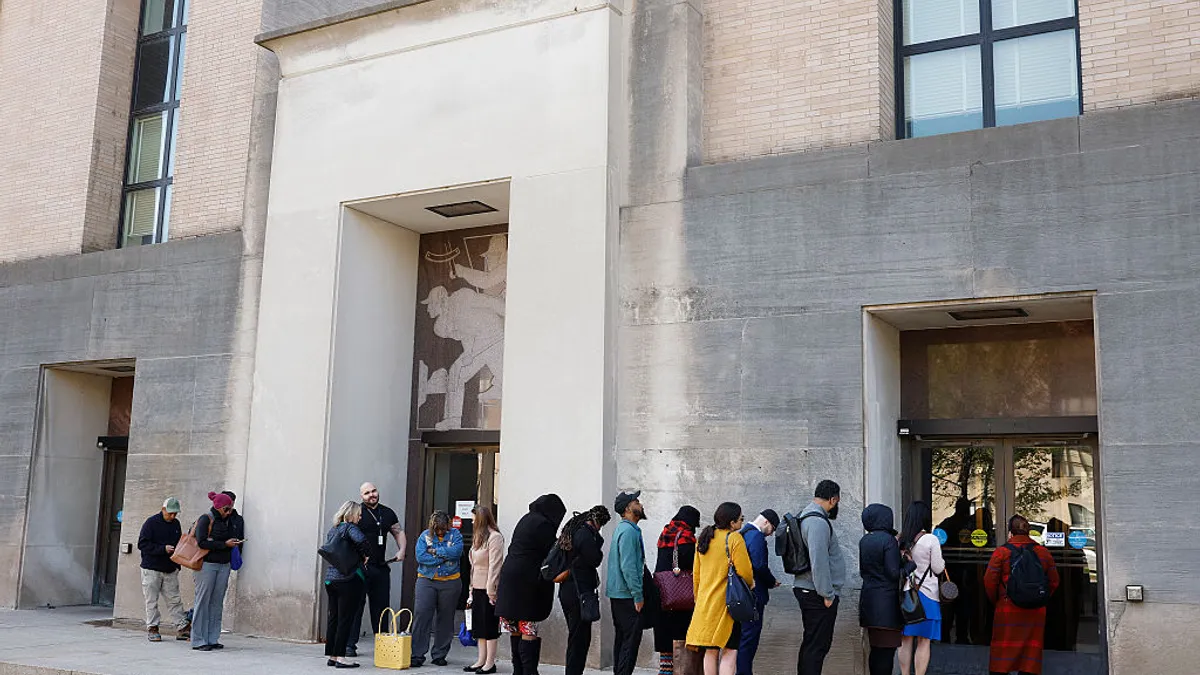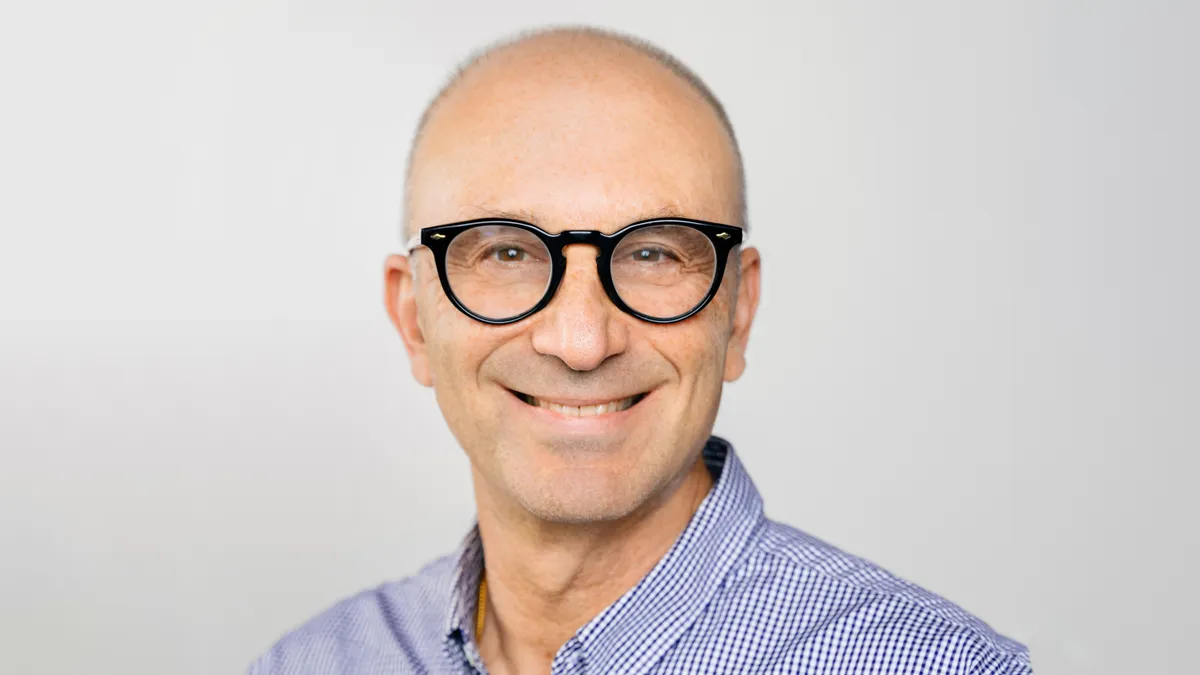CEOs of biopharma organizations face unprecedented challenges as they lead their companies amid a global pandemic, shoring up their organizations during turmoil, and learning valuable lessons along the way.
David Lucchino
Maintaining an Entrepreneurial Edge
 Over the past year, we have put significant focus on maintaining and fostering our culture at a time when the majority of employees are working remotely and as we enter an important period in the evolution of our company. Since the pandemic started, our headcount has increased by 55%, and I want to ensure that each person who has joined during that time understands our journey and the spirit and entrepreneurial nature of the organization. My priority has been to find ways to connect the organization so that we don’t let distance prevent the cohesiveness we have always had, and that will be increasingly important in the months and years ahead.
Over the past year, we have put significant focus on maintaining and fostering our culture at a time when the majority of employees are working remotely and as we enter an important period in the evolution of our company. Since the pandemic started, our headcount has increased by 55%, and I want to ensure that each person who has joined during that time understands our journey and the spirit and entrepreneurial nature of the organization. My priority has been to find ways to connect the organization so that we don’t let distance prevent the cohesiveness we have always had, and that will be increasingly important in the months and years ahead.
Maintaining Patient Recruitment
When the pandemic struck and shutdowns began, we were in an important phase in recruiting for our hearing restoration program. We were fortunate in that we were working with private ear, nose, and throat clinics that were not attached to major medical centers. These ENTs and their staff were great partners in ensuring that patients could continue to follow study protocols, while ensuring their safety. Our retention rate for the study is north of 95%, and in the end, we were able to finish enrollment ahead of our revised timing.
A Building Does Not Make A Company
In the past, I had never been a huge proponent of people working remotely. I was concerned that we would lose the energy that comes from being together and the opportunities to generate ideas just from running into colleagues in the hallway. While I am excited about a future where we can all be together, I also understand that a building does not make a company. When you have people passionate about doing something as transformative as our work to reverse hearing loss, they will go to tremendous lengths to get things done. I applaud our team for their efforts and I have great confidence in their determination, resilience, and commitment, regardless of where they sit.
Dr. Shankar Musunuri
Patient Recruitment During Difficult Times
Continuing to move our programs forward during historically difficult times comes with its challenges, in particular, preparing to recruit for our first clinical trial and the stability of gene therapy manufacturing for the upcoming trial. We are strategically looking at ways to generate excitement among patients to drive recruitment, which is a key initiative for the beginning of the year. In addition, a significant number of questions from the FDA IND submission are related to gene therapy manufacturing, and therefore securing our gene therapy manufacturing relationship with CanSino Biologics early in development minimizes our product quality risk and positions us to enter the clinic with OCU400 to treat inherited retinal diseases in 2021.
Development Goes On
I am proud of the advancements we have made this year in developing our modifier gene therapy and novel biologic product candidates. Despite the challenges of the global pandemic, I am pleased that we have been able to raise approximately $28 million of gross proceeds in the first three quarters of 2020, which has extended our cash runway for continued development of our product candidates. We have also secured manufacturing partnerships for our programs, giving us a clear path to get into the clinic.
The Critical Role of Biopharma
The pandemic has been a stark reminder of the critical role the biopharma industry plays in our lives. The breakthroughs over the last two decades are paving the way for new therapies and cures to be developed around the world for COVID-19 and other diseases. I was pleasantly surprised at how quickly biotech companies have embraced the challenge to find a solution. I was also surprised at how quickly everyone in the industry has adapted to the new virtual environment of working remotely, but also attending conferences and meetings remotely as demonstrated in the amount of IPOs this year.
Dr. Eric Ostertag
Managing Growth
At Poseida, we are using our proprietary technology to revolutionize cell and gene therapy. For us, 2020 was a year of tremendous progress, including advancing our pipeline, opening a new pilot plant, and completing our IPO in July 2020. My biggest challenge is managing our explosive growth in a thoughtful manner that allows us to add individuals with new ideas regarding products, policies, and practices, while maintaining the innovation, passion, and nimbleness that made us a successful company in the first place.
Ensuring Company Safety
We were very proactive about ensuring the safety of our employees while continuing to create the next wave of cell and gene therapies for patients in need. We quickly made decisions that enabled us to continue advancing our pipeline before being told what we should do by the federal or state government. Examples include implementing additional paid time off before federal rules were put in place, implementing proactive and novel protective measures for employees, including work from home policies and frequent deep cleaning and UV air filtration in the building, and ensuring that supply chains would be stable during the pandemic.
Changing the Face of Medicine
At Poseida, we are using advanced gene editing and gene delivery technologies to change the face of medicine. By collaborating closely, our team moved quickly to enable us to maintain operations during the pandemic. I learned that we were able to make our business practices even more efficient. We were one of the first companies to do a crossover financing round and IPO completely virtually. This saved a lot of time and resources by not having to travel, enabling Poseida to go public in July 2020. We have also found that Zoom meetings are actually quite efficient and oftentimes end ahead of schedule. There are many other examples of efficiencies that we will want to maintain even after the pandemic ends.
Dr. Steve Paul
Evolutionary Times
This is truly a transformative moment for Karuna Therapeutics as we’ve recently evolved into a late-stage clinical biotech company. This evolution has come with rapid growth – we’ve more than doubled our workforce within the past year to not only support our clinical development efforts, but also our expansive drug discovery work and to initiate early commercial planning. Such rapid change can be challenging during the best of times, but has been made much more complicated due to the pandemic. I’m proud that even through these unprecedented times, we’ve continued to grow our organization while staying laser focused on delivering meaningful advances for patients with severe neuropsychiatric disorders.
Delivering on the Mission
This past year was full of unexpected and unprecedented challenges. While there were many things we could not change, we encouraged our teams to focus their energy on what they could control. This meant grounding and reminding each other of our shared purpose: to make meaningful advances for people affected with severe neuropsychiatric conditions. With this top of mind, we’ve continued our growth, seen through two new drug discovery collaborations, successful meetings with the FDA, and the initiation of our Phase III program in schizophrenia, and are closer to delivering on our mission.
Resiliency Through Disruption
Leadership through a year such as this requires flexibility, clear communication, and compassion – and at times a sense of humor. I have seen the resilience of the human spirit in my own team at Karuna, especially in their incredible work ethic and teamwork. I truly believe that we’ve worked harder this year than ever before. In many ways, the challenges we faced drove innovative and new ways of working. And to that end, I am optimistic that these learnings will drive success in 2021 and beyond.
Dr. Stuart Peltz
Finding New Ways to Grow
At PTC Therapeutics, we look at crises as an opportunity to grow. We have become more efficient; we communicate more and have stronger alignment across all the company departments. We were united to focus on not only supporting each other but also ensuring uninterrupted access to our therapies for our patients.
Despite the challenges of the pandemic, we have moved our programs forward. We were able to initiate multiple clinical trials as soon as it was safe to do so. We worked to modify the trials given the new circumstances. We continued to connect with the community — virtually — and were able to reach more individuals because we were not limited by geographies. The pandemic has made us find new ways to connect, and we will bring these adaptations into the future as we continue to do everything possible to develop and deliver treatments for patients in need.
Communication Is Key
We found we truly can’t communicate enough. When the pandemic first erupted, the world was faced with uncertainty, which we continue to see today. Through transparency and constant engagement on an internal and external level, I have found connections to employees and the community stronger than ever.
Additionally, we built task forces right away to safeguard the health and safety of our employees and to continually assess issues that could potentially arise with our clinical programs and commercial business to ensure access to our therapies. As a result, our teams have adapted and continue to execute.
Pandemic Lessons Learned
While 2020 presented new and unique challenges, it has also given us an opportunity to learn together as a company and to grow closer and strengthen our values.
We have learned that early intervention is key during the pandemic, which is why we have created a task force dedicated to planning for the future and strategizing multiple scenarios of what will be needed to be successful in different places around the globe. We also connected more with the community. We initiated an internship program to help recent graduates develop work experience at a time when the job market was shrinking. We worked with local high schools to educate students on careers in science and to inspire the next generation of scientists.
Prof. Andrea Pfeifer
Adapting to Changing Regulations
This year has been the year of the unexpected, the pandemic has grown bigger and faster than predicted, and the impact on our personal and professional lives has been unprecedented. We are a Swiss-based biopharmaceutical company and could rely on the political and financial stability of the country to reduce the impact of the pandemic. Nevertheless, leading a clinical-stage company in one of the most challenging research domains, neurodegenerative diseases, through a pandemic has been a constant adaptation to changing regulations, not only in Switzerland, but also in the coordination of our manufacturing activities, preclinical and clinical trials across a large number of countries located on different continents and in partnership with several global pharmaceutical companies.
Overall, I am proud of the work we have delivered in executing our robust business continuity plan in coordination with my colleagues, clinical trial managers, and partners to effectively minimize the impact of the pandemic on AC Immune’s pipeline advancement and R&D development. Despite these challenges we remain on track to achieve remarkable clinical and R&D milestones over the next 12 months.
Maintaining Positive Morale
 Since its foundation, AC Immune has established a solid financial position and broad pipeline focused on neurodegenerative diseases. At the start of the pandemic, many key trials were already fully enrolled and patient follow-up was continuing virtually instead of in person, therefore the impact on our long-term strategy and company objectives due to the pandemic could be reduced to a minimum.
Since its foundation, AC Immune has established a solid financial position and broad pipeline focused on neurodegenerative diseases. At the start of the pandemic, many key trials were already fully enrolled and patient follow-up was continuing virtually instead of in person, therefore the impact on our long-term strategy and company objectives due to the pandemic could be reduced to a minimum.
The aim of our business continuity plan was to make every provision to protect the health of patients, staff, and investigators while as much as possible maintaining productivity and integrity of our clinical development. These measures were adapted in continuous coordination with partners and important stakeholders, including the Swiss government, trial investigators, and contractors.
Since we are developing treatments for elderly people and at-risk groups, such as people living with Down syndrome, some study initiations had to be delayed until it is safe to have patients return to clinical investigation sites and participate in clinical trials.
Internally, it has been important to maintain positive morale at a time when many members of our team cannot visit their families in neighboring countries and safety regulations limit personal interactions on a daily basis.
Flexibility has been key and this includes work-from-home days and other provisions aimed to reduce the additional stress on our people and maintain productivity as well as good physical and mental health across the organization.
Biopharma’s Impact on Society
COVID-19 has given the biotech sector an exceptional momentum and simultaneously shown its importance and potential impact on society. Investments have surpassed previous records, the regulatory pathway for approval of COVID-19 vaccines has undergone an unprecedented acceleration from R&D to approval, and the public is divided between the hope for a rapid end of the pandemic allowing for a return to normal life and skepticism about the safety of the new vaccines.
All of these disruptive changes have made clear that in the face of a global pandemic that significantly impacts our quality of life, social interactions, and financial security, rapid measures can be implemented through global collaborations between the healthcare sector, pharmaceutical companies, and the regulatory authorities. When challenged, the global healthcare community can make progress and achieve remarkable outcomes that address unmet needs.
For me, this has made obvious the need to address the severe unmet need in Alzheimer’s disease and other neurodegenerative diseases, which, taken together, constitute another slow and silent pandemic affecting the same components of people’s lives. More than ever, I believe we can, as a community, improve the way these diseases are treated.
To stop this continuously growing pandemic, we not only need to maintain our efforts to find a cure for Alzheimer’s disease, but also to stop the social stigma associated with cognitive impairment. Preventive and risk reduction approaches need to be more widely communicated and confidence in the research on neurodegenerative diseases needs to be reestablished.
We are making progress and with the development of precision medicine for neurodegenerative disorders, we will gain a better understanding of dementia and the underlying neuropathology, as has been the case in oncology, leading to successful therapeutic approaches.
Dr. Hong Wan
Balancing Act
Focusing on many different areas — and balancing a disciplined approach with the need to move fast — is always the biggest challenge we face. As a biotech startup developing a novel therapeutic platform and advancing immune therapies for cancer, we are working in a highly dynamic and competitive area. As I collaborate with our talented scientists and drug developers, we constantly apply scientific rigor to our research and make data-driven decisions while executing with external CRO partners to move our programs forward. Finding the right balance consistently is certainly a challenge, but it’s one that we embrace.
Out of Stealth Mode
Tallac accomplished a great deal in 2020: we came out of stealth mode, completed our Series A financing and fully staffed our research team. As with many companies, the shift to remote work was a new challenge. Fortunately, our core team members have worked together previously, so there was already a great deal of trust and respect among the group. We shored up the company by being vigilant about our COVID policy at work, allowing our scientists flexibility in their own schedules to enable continued laboratory operations, keeping everyone informed of company updates, and celebrating and supporting one another with each scientific and corporate milestone.
Exhausting and Energizing
When a friend asked me to describe the year 2020 using just a couple of words, I said: “exhausting and energizing." I’ve learned that facing one challenge after the next can have negative impacts, but it can also excite and motivate. It teaches people to lean on each other so we can keep pushing forward together. We also learned we can have a really coherent team without being physically in the same space, and that our industry has the capability to bring a therapeutic or vaccine from discovery to regulatory approval in nine months.
Michael Weiss
Maintaining the Momentum
Lately, my No.1 priority has been to maintain the momentum we’ve achieved over the past 12 months. Between our numerous clinical programs in development, several pivotal data announcements, significant capital raises, and two regulatory filings, 2020 has given us our fair share of accomplishments. 2021 is also shaping up to be an exciting year for TG, with two PDUFA dates on the calendar for the first half of the year, and the potential for more regulatory filings on the horizon. We have grown substantially over the year and look forward to continuing the momentum in 2021.
Pivot and Adapt
When almost all aspects of business and daily life were thrown into disarray in early March, we were unsure of what to expect for the year, however we knew we had to focus on our goals and continue to push forward. It was amazing to see the TG Therapeutics team come together, think critically and creatively, and successfully operate under all of the COVID-19 guidelines that were put in place. The guidelines certainly added a new level of complexity to our business, but made us stronger as a company and truly ready to tackle a variety of situations. We were fortunate in our ability to successfully pivot and adapt to the changing times by focusing on the primary goal of bringing our first medicines to market and to the patients that need them most.
The Strength of the Team
I certainly know more now about the strength and resilience of my team than I had in the past, particularly how efficiently we can operate as a business in a remote environment while facing unprecedented challenges. 2020 was a transformational year for TG Therapeutics as we continued to grow and build our commercial infrastructure, and in a sense, the challenges presented by the pandemic have allowed us to pressure test our team’s readiness and agility and adapt accordingly. By attacking these challenges head-on, our team demonstrated exceptional strength and ultimately gave reassurance that our progress would continue unabated. Our clinical, regulatory, and financial success in 2020 are all attributable to that strength inherent in our team.(PV)


















